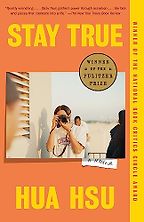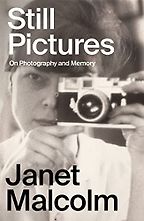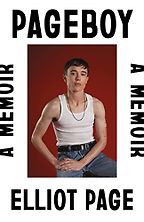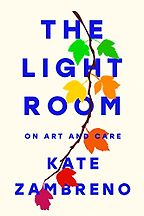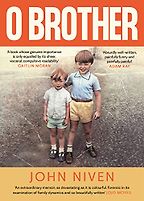What are the most acclaimed memoirs of 2023?
Well, usually here I’d have two automatic answers: this year’s winner of the National Book Critics Circle Award for Memoir and Autobiography, and the winner of the Pulitzer Prize for Autobiography or Memoir. But what would you know—in 2023, the same book won both. Bard professor and New Yorker writer Hua Hsu’s Stay True centres upon the death of a Berkeley classmate in a bungled armed robbery. The Pulitzer judges declared it an “elegant and poignant coming of age account that considers intense, youthful friendships but also random violence that can suddenly and permanently alter the presumed logic of our personal narratives.” Stay True has been out in the United States since October 2022, but only reached UK bookshops this month.
Also of note: The Man Who Could Move Clouds by Ingrid Rojas Contreras—a powerful memoir about Contreras’s Colombian heritage and an apparent supernatural inheritance—was also a finalist for both prizes. It traces her family’s history through decades of national upheaval; as the New York Times review noted, “spectral treasure hunts, abusive men, alcoholic ghosts and shape-shifting witches; paramilitaries set fire to a family farm, bomb blasts become a normal occurrence and an uncle is kidnapped by guerrillas four separate times.” Its reliance on oral history manifests as an unavoidably disjointed and unverifiable narrative, but it is nevertheless “a spellbinding and genre-defying ancestral history.”
Should I be aware of any new memoirs or autobiographies from major literary figures?
Absolutely. The late, great Janet Malcolm’s final book, Still Pictures, was released posthumously at the start of this year. It’s a memoir in essays, inspired by a collection of black and white photographs of her Czech refugee family found in a box (labeled ‘old not good photos’) in her attic. They left Prague in 1939, she writes: “We were among the small number of Jews who escaped the fate of the rest by sheer dumb luck, as a few random insects escape a poison spray.” Malcolm was instinctively leery of autobiography. Memoir was a “novelistic enterprise,” she felt. But these candid images offered her an alternate way in, one befitting the former photography columnist for the New York Times: “Occasionally… like memory itself, one of these inert pictures will suddenly stir and come to life,” she writes, warming to her theme. Still Pictures will not, perhaps, be the work that Malcolm will be best known for, but it will greatly appeal to those who already admire her writing.
I was also very excited to learn about a new book from the French Nobel Prize-winner Annie Ernaux. The Young Man—ably translated from the original French by Alison Strayer—is an exacting account of an affair with a student thirty years her junior. “Perhaps it was the desire to spark the writing of a book—a task I had hesitated to undertake because of its immensity—that prompted me to take A home for a drink after dinner at a restaurant,” she writes, analysing herself after the fact. The affair does not end well, but one does not read Annie Ernaux for happy endings. She has made her name by conducting live dissections of her emotional life, and The Young Man is no different. But it is, even for Ernaux, a very slim book, coming in at only 35 pages.
Have there been notable celebrity memoirs published in 2023?
It would be remiss of me not to mention Prince Harry’s Spare. I think I must have absorbed every revelation in that book by osmosis thanks to the exhaustive media coverage of its launch. So let’s lay that aside; there’s little point in me recapping what’s already well known, except to note that The New Yorker published an interesting behind-the-scenes account of the book’s creation by the ghost writer, J. R. Moehringer—a Pulitzer Prize-winning writer in his own right.
Otherwise, the celebrity memoir of the year is probably Elliot Page’s Pageboy, which charts—among other things—his Hollywood career, coming out as gay, then his later gender transition. The Juno and Inception actor might be the most famous trans man in the world right now, and this thoughtful, non-linear account is thus not only a glimpse into the Tinseltown lifestyle but a valuable addition to trans literature. In its sensitivity and earnest tone, wrought from first-hand and sometimes painful experience, it is also, as was noted in the i, “a vital antidote to the toxic trans debate.” If you’d like to get a taste of the book before committing, People magazine published an extract from the first chapter here.
What are the ‘buzzy’ memoirs that people in the industry have been talking about?
Kate Zambreno is a true writers’ writer; her books are always being recommended to me by other authors. (Most recently, the novelist Catherine Lacey told me that Zambreno’s Screen Tests is “a perfect book.”) Her latest, The Light Room, is billed as “a candid chronicle of life as a mother of two young daughters in a moment of profound uncertainty.” Annie Ernaux herself offered an endorsement, enthusing that Zambreno “has invented a new form,” comprising “a kind of absolute present, real life captured in closeup.” That absolute present is a meditation on parenting, on the quiet joys of maintenance, and what Zambreno terms “life inside”—that is, both of being cooped up in the house during the pandemic, and interiority in that other sense. The life of the mind finds intellectual trapdoors that can relieve the tedium. Speaking to Lithub recently, Zambreno explained that she hopes the book will be “a balm for others, a space of joy as well as exhaustion and deep sadness, a space to think with.”
The US poet Maggie Smith—whose bittersweet poem ‘Good Bones’ went viral several years ago, making Smith an overnight sensation—has released a memoir charting the disintegration of her marriage. (Its title, You Could Make This Place Beautiful, is a line from that poem.) Smith’s fans tend towards the devotional, but I do have the sense that this particular book has been unusually polarising. You’ll either love it and find its aphoristic style and motivational tone inspiring, or you’ll find it somewhat trying. Probably that description in itself will be enough to indicate which will be the case in your instance.
Another social media darling, Oliver Darkshire—whose unexpectedly riotous helming of the Sotheran’s antiquarian bookshop Twitter account found an avid online audience—has published Once Upon a Tome: The Misadventures of a Rare Bookseller. Sotheran’s, on London’s Sackville Street, is one of the world’s oldest bookshops, and is by all accounts a charmingly eccentric establishment, with a resident ghost, cursed books, and a byzantine cataloguing system. Darkshire’s whimsical and humorous account of his apprenticeship in this storied, somewhat shadowy, institution is a lot of fun. If you’re on the fence, Lithub has published an extract.
Any personal highlights from the crop of 2023 memoirs that you haven’t mentioned yet?
Yes. The Scottish novelist and screenwriter John Niven—perhaps best known for the cult favourite Kill Your Friends—has just released a searing account of his fraught relationship with his charismatic younger brother Gary, who took his own life in 2010. O Brother records how their lives began in tandem but diverged; while John made his way in the music business, and later as a writer, Gary worked manual jobs and dealt drugs in the small town they grew up in. By the end of his life, Gary had alienated most of his friends and family, and was in debt—although not insurmountably so. Looking through his dead brother’s belongings, John tallies up the overdue bills and has the sickening realisation that he could have written a cheque and solved his sibling’s financial crisis instantly. But what might have been a grim story of self-recrimination and despair is, in Niven’s hands, a moving and even exuberant story that reflects the chaotic energy of their brother and the dark humour that he and his sister Linda forge from an otherwise harrowing situation.
Let me slip in a couple more quick ones: naturalist Amy-Jane Beer just won the UK’s Wainwright Prize for The Flow: Rivers, Waters, and Wildness, in which she revisits the waterway that claimed the life of a close friend, and in doing so opens herself again to fluvial beauty; and former Five Books contributor Thea Lenarduzzi‘s lyrical family memoir Dandelions is currently in contention for the UK’s Ackerley Prize for Autobiography.
And finally, the next thing on my to-be-read pile is The Country of the Blind: A Memoir at the End of Sight by Andrew Leland, a sufferer of retinitis pigmentosa, a degenerative condition that will ultimately result in complete blindness. The Millions editor Sophia Stewart raved that it was not only one of the best books she’d read in 2023, but “one of the best books I’ve ever read in my life. No descriptor feels capacious enough: an intellectually rigorous memoir, a moving cultural history, and a brilliant study of blindness, disability, and adaptation.” Sounds good to me.
September 23, 2023. Updated: September 27, 2023
Five Books aims to keep its book recommendations and interviews up to date. If you are the interviewee and would like to update your choice of books (or even just what you say about them) please email us at [email protected]
Five Books interviews are expensive to produce. If you've enjoyed this interview, please support us by donating a small amount.
